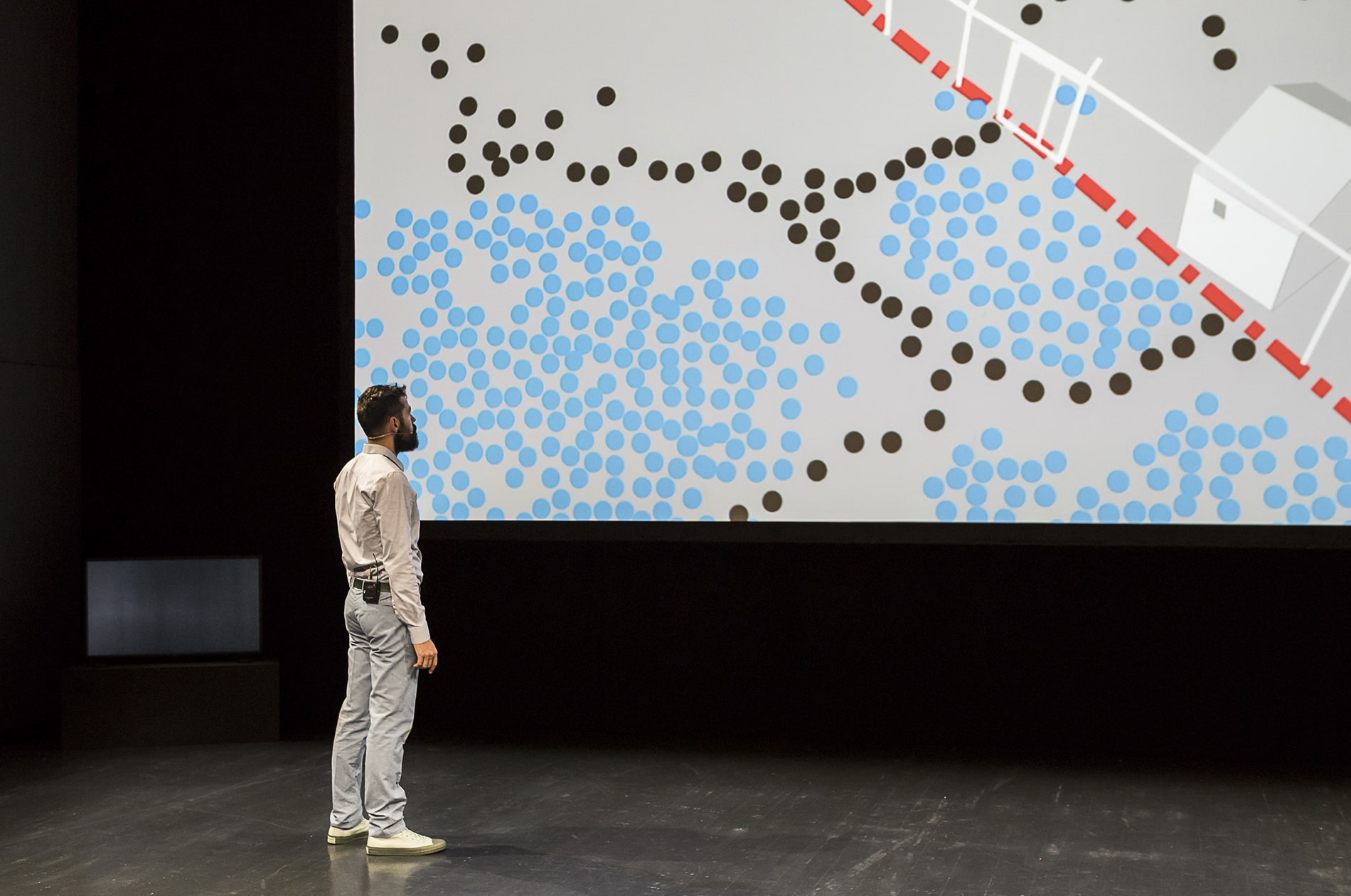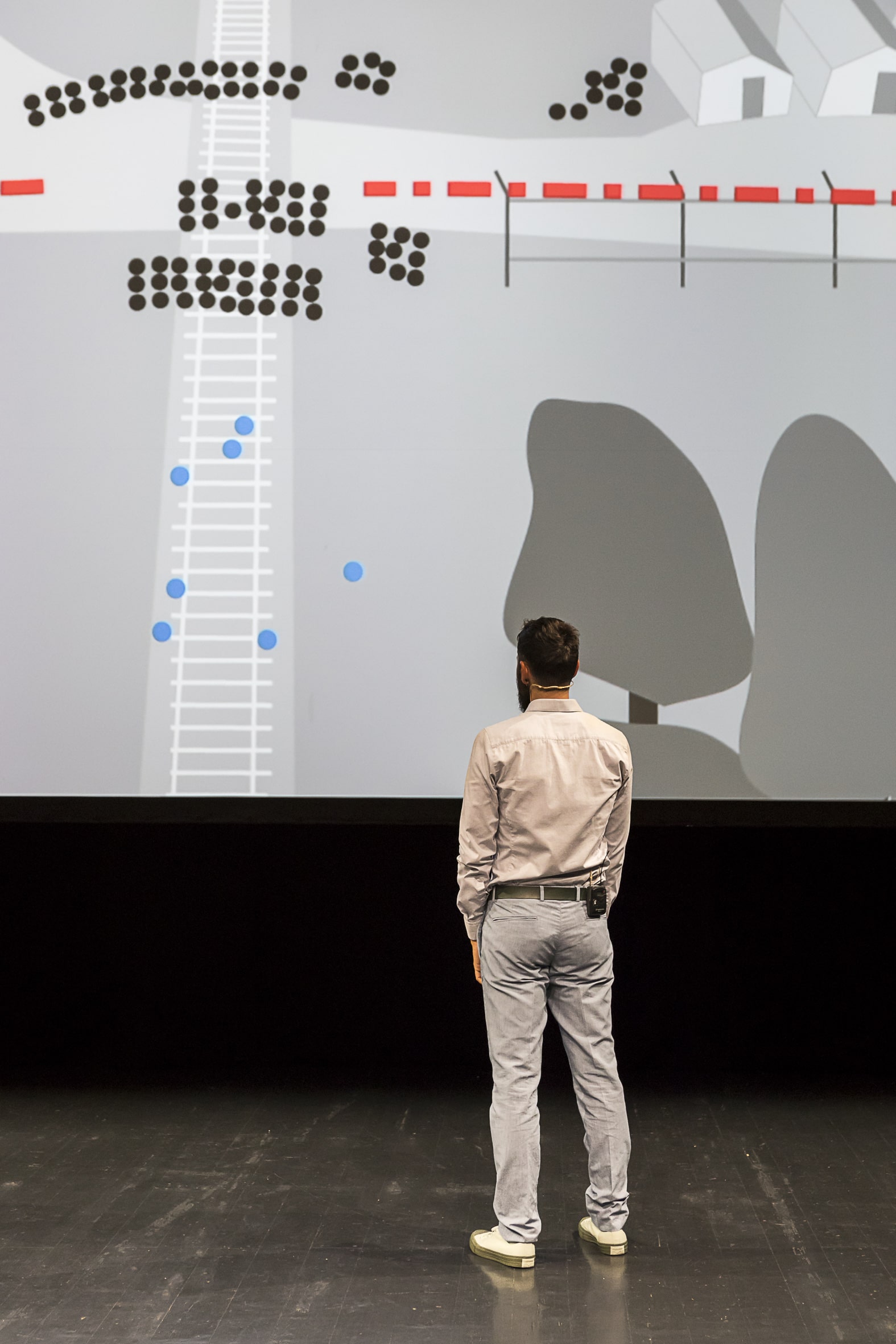

"TALOS" by Arkadi Zaides. Courtesy of the artist. Photos © Dajana Lothert
TALOS
What kind of choreography arises in the proximity of borders? Which strategies of restriction define movement? TALOS by Arkadi Zaides sets out to explore a dynamic system of action and reaction, limitation and transgression, stasis and mobility. The piece is a response to TALOS, an EU-funded research project in the field of security enforcement for which an advanced system aimed at protecting European land borders was designed. TALOS was a collaborative project involving fourteen institutions from ten countries that was officially conducted between the years 2008-2013. It resulted in the conception of a surveillance system that could be rapidly deployed to any location. This system was to be based on mobile, semi-autonomous robots that patrol border areas and gain physical and performative presence. The TALOS project was never launched and remained an experiment, a test, and a demonstration of technological capabilities. Since 2016, Arkadi Zaides has gathered a team of choreographers, dramaturges, and video artists to develop a performance that questions the TALOS project.
CREDITS
Team
Claire Buisson, Jonas Rutgeerts, Youness Anzane, Nienke Scholts, Effi & Amir, Gabriel Braga, Arkadi Zaides/Ido Gidron, Amit Epstein, Thalie Lurault, Etienne Exbrayat, Simge Gücük
Performed by
Arkadi Zaides / Lara Barsacq
Co-produced by
Les Subsistances
La Maison de la Danse
Tanzquartier Wien
NEXT Arts Festival
CSS, Villa Manin
CDC Toulouse
Wiesbaden Biennale
Teaterhuset Avant Garden
CCNN Nantes
K3 - Zentrum für Choreographie, Tanzplan Hamburg as part of Together Apart project, funded by the German Federal Cultural Foundation
Residency support
Kunstenfestivaldesarts
O Espaço do Tempo
STUK
Tanz im August/HAU Hebbel am Ufer
With the participation of
DICRéAM
With the support of Transfabrik Fund - the Franco-German Fund for performing arts
Institut des Croisements - Arkadi Zaides is supported by French Ministry of Culture and Communication - DRAC Auvergne Rhône-Alpes
Distribution
Something Great